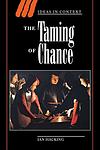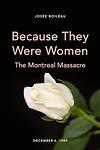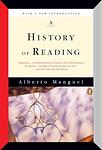The Greatest Canadian, Australian "Nonfiction, History" Books Since 1970
Click to learn how this list is calculated.
This list represents a comprehensive and trusted collection of the greatest books. Developed through a specialized algorithm, it brings together 305 'best of' book lists to form a definitive guide to the world's most acclaimed books. For those interested in how these books are chosen, additional details can be found on the rankings page.
Genres
The category of "History" in books refers to the study and interpretation of past events, societies, and cultures. It encompasses a wide range of topics, including political, social, economic, and cultural developments, as well as the lives of individuals and groups who have shaped the course of history. History books can be written from various perspectives and may focus on specific time periods, regions, or themes. They aim to provide readers with a deeper understanding of the past and its impact on the present.
Countries
Date Range
Reading Statistics
Click the button below to see how many of these books you've read!
Download
If you're interested in downloading this list as a CSV file for use in a spreadsheet application, you can easily do so by clicking the button below. Please note that to ensure a manageable file size and faster download, the CSV will include details for only the first 500 books.
Download-
1. The Taming of Chance by Ian Hacking
"The Taming of Chance" delves into the evolution of the concept of probability and its societal implications. The book takes the reader through the historical progression of probability and statistics, illustrating how they have shaped and been shaped by societal norms. The author highlights the profound impact of this mathematical concept on various aspects of life, including law, science, and philosophy, and how it has fundamentally changed our perception of the world.
The 5104th Greatest Book of All Time -
2. The Montreal Massacre by Louise Malette and Marie Chalouh
The book provides a detailed account of a tragic event that took place at an engineering school in Montreal, where a gunman targeted female students, resulting in the loss of numerous lives. The authors delve into the societal and cultural factors that may have contributed to the perpetrator's motivations, examining issues of gender-based violence and misogyny. Through interviews, personal reflections, and analysis, the book seeks to honor the victims and explore the broader implications of the event for Canadian society and the ongoing struggle for gender equality.
The 5174th Greatest Book of All Time -
3. 800 Horseman by Col Stringer
The book is a historical account that pays tribute to the legendary Australian Light Horsemen, who played a crucial role during World War I, particularly in the Middle East campaign. It delves into the remarkable feats of these mounted troops, known for their exceptional horsemanship, courage, and endurance. The narrative celebrates their most famous victory at the Battle of Beersheba and explores the unique bond between the horsemen and their faithful mounts, offering insights into the strategies, challenges, and the enduring legacy of these iconic figures in Australian military history.
The 5734th Greatest Book of All Time -
4. The Fatal Shore by Robert Hughes
"The Fatal Shore" provides an expansive and detailed historical account of the colonization of Australia by the British Empire, focusing particularly on the transportation of convicts to the penal colonies established there in the 18th and 19th centuries. The book delves into the harsh realities and brutal conditions faced by the convicts, as well as the broader social, political, and economic ramifications of establishing a colony on the other side of the world. Through compelling narratives and meticulous research, it explores the transformation of Australia from a penal colony to a nation, examining the impact on both the indigenous populations and the settlers.
The 5800th Greatest Book of All Time -
5. The Warrior's Honor: Ethnic War and the Modern Conscience by Michael Ignatieff
The book explores the moral and ethical challenges faced by modern societies when confronted with ethnic conflicts and wars. It delves into the complexities of humanitarian intervention, the role of the media in shaping public perception, and the struggle to reconcile the principles of human rights with the brutal realities of ethnic violence. Through a series of case studies and philosophical reflections, the author examines the tension between the universal claims of morality and the particular loyalties of kinship and nationality, questioning the capacity of moral conscience to mediate in conflicts where deep-seated cultural and ethnic animosities are at play.
The 6657th Greatest Book of All Time -
6. A History Of Reading by Alberto Manguel
This book offers a captivating exploration of the evolution of reading throughout the centuries, tracing its transformation from a privileged art practiced by a select few to a widespread pastime enjoyed by many. The narrative delves into the intimate relationship between readers and texts, examining how reading practices have shaped human history, culture, and personal lives. Through a tapestry of anecdotes, analysis, and personal reflections, the work celebrates the reader's role in giving meaning to the written word and considers the future of reading in the digital age.
The 6825th Greatest Book of All Time -
7. Fighting Mc Kenzie Anzac Chaplain by Col Stringer
The book tells the story of Daniel "Fighting Mac" McKenzie, a remarkable military chaplain who served with the ANZAC (Australian and New Zealand Army Corps) forces during World War I. Known for his unorthodox methods and fierce determination, McKenzie was a spiritual guide who also physically defended and rescued soldiers in the trenches, earning him legendary status among the troops. His story is one of bravery, compassion, and unwavering faith, as he navigated the horrors of war to provide comfort and support to the soldiers fighting on the front lines. Through his actions, McKenzie became a symbol of hope and resilience, embodying the spirit of the ANZACs.
The 7002nd Greatest Book of All Time -
8. Wrong About Japan by Peter Carey
In this travel memoir, a father and his anime-obsessed son embark on a journey to Japan in an attempt to understand the son's fascination with the country's pop culture. Their adventure leads them to meet manga artists, anime directors, and cultural commentators, through which they explore the nuances of Japanese animation and its historical contexts. As the father attempts to bridge the cultural gap and connect with his son, he confronts his own preconceptions and discovers the complexities of modern Japanese culture, which cannot be easily understood through the lens of Western perspectives. The narrative delves into themes of cultural exchange, the generational divide, and the search for authenticity in a land where the line between reality and fiction often blurs.
The 8445th Greatest Book of All Time -
9. Reading The Holocaust by Inga Clendinnen
"Reading the Holocaust" is an insightful exploration into the complex human realities of the Holocaust. The book delves into the motives and behaviors of both the perpetrators and the victims, challenging simplistic explanations and moral judgments. Through a meticulous examination of diaries, letters, and official documents, the author provides a nuanced analysis of the events and psychology that shaped this dark period in history. The work emphasizes the importance of understanding the Holocaust in all its complexity to better grasp the capacities and limits of human nature.
The 8968th Greatest Book of All Time -
10. Stasiland by Anna Funder
This non-fiction work delves into the haunting legacy of the Stasi, the secret police of the former East Germany, through a series of personal narratives and interviews. The author explores the pervasive surveillance and oppression that characterized the German Democratic Republic, weaving together the stories of those who resisted the regime, those who worked for it, and those who were its victims. The book serves as a poignant examination of the human spirit under the strain of totalitarianism, revealing the scars left by a society where privacy was eradicated and trust was a commodity few could afford.
The 9052nd Greatest Book of All Time -
11. Home: A Short History Of An Idea by Witold Rybczynski
"Home: A Short History of an Idea" explores the evolution of the concept of home from medieval times to the modern day, examining how domestic comfort and the idea of privacy have developed over the centuries. The book delves into architectural, cultural, and social changes, illustrating how homes have transformed from mere shelters to places of comfort and personal expression. Through an analysis of various elements such as lighting, heating, and interior design, the author provides insights into how the notion of what makes a house a home has shifted, reflecting broader changes in society and individual expectations.
The 9438th Greatest Book of All Time -
12. The Tiger by John Vaillant
"The Tiger" is a non-fiction book that delves into the gripping account of a man-eating Amur tiger's deadly rampage in a remote Russian village in the late 1990s. The narrative explores the complex relationship between humans and nature, highlighting the impact of poaching and habitat loss on the tiger's behavior. Through meticulous research and vivid storytelling, the book weaves together local history, conservation science, and socio-economic factors, offering a profound examination of the consequences when human encroachment and environmental degradation provoke the fierce retaliation of one of nature's most formidable predators.
The 9529th Greatest Book of All Time -
13. War by Margaret MacMillan
"War" by Margaret MacMillan is a comprehensive analysis of the causes, conduct, and consequences of war throughout history. Drawing on a vast range of sources, including personal accounts, political documents, and military strategy, MacMillan explores the human motivations behind war and the complex web of political, economic, and social factors that drive nations to conflict. She examines the impact of war on individuals and societies, from the trauma of soldiers on the front lines to the far-reaching political and economic consequences of global conflicts. Ultimately, MacMillan argues that war is a deeply human phenomenon, shaped by the complex interplay of individual and collective desires, fears, and ambitions.
The 9546th Greatest Book of All Time
Reading Statistics
Click the button below to see how many of these books you've read!
Download
If you're interested in downloading this list as a CSV file for use in a spreadsheet application, you can easily do so by clicking the button below. Please note that to ensure a manageable file size and faster download, the CSV will include details for only the first 500 books.
Download










